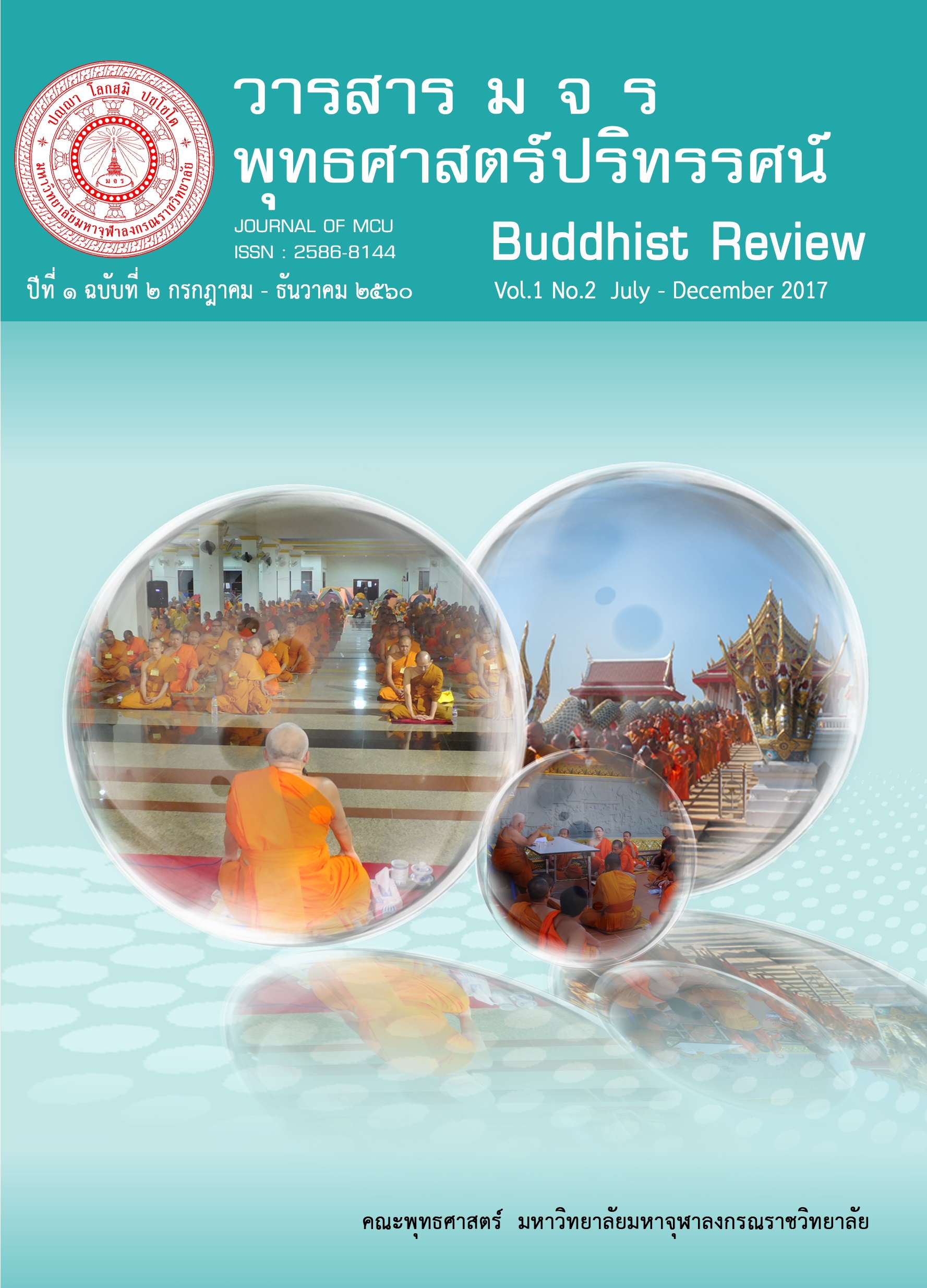อจินไตยในมุมมองของพุทธทาสภิกขุ
Main Article Content
บทคัดย่อ
บทความเรื่อง อจินไตยในมุมมองท่านพุทธทาสภิกขุนี้ ผลการศึกษาพบว่า อจินไตยในพระไตรปิฎก หมายถึง สิ่งที่ไม่ควรคิดสี่อย่างได้แก่ ๑) พุทธวิสัยหมายถึง วิสัยของพระพุทธเจ้าทั้งหลาย ๒) ฌานวิสัยหมายถึง วิสัยแห่งอิทธิฤทธิ์ของผู้มีฌาน ๓) กรรมวิสัยหมายถึง วิสัยของกฎแห่งกรรมและวิบากกรรม ๔) โลกวิสัย หมายถึงวิสัยแห่งโลก อจินไตยนี้พระพุทธเจ้าตรัสว่าบุคคลไม่ควรคิด ใครคิดพึงมีส่วนแห่งความเป็นบ้า ความเดือดร้อน
มุมมองของท่านพุทธทาสภิกขุในเรื่องอจินไตยนั้น ท่านกล่าวไว้ในภาษาคนภาษาธรรมดังนี้ ๑) พุทธวิสัย ภาษาธรรมนั้น หมายถึงตัวธรรมะแท้ ๆ ๒) ฌานวิสัย ในภาษาธรรม ถ้ายังไม่ส่าเร็จมรรคผล เรียกว่า โลกียฌาน ถ้าส่าเร็จมรรคผลตั้งแต่พระโสดาบันขึ้นไป เรียกว่า โลกุตตรญาณ ซึ่งในความหมายของท่านพุทธทาสภิกขุเรียกในภาษาธรรมว่า สุญญตา ๓) กรรมวิสัย กรรมในภาษาคนคือ โชคร้าย แต่กรรมในภาษาธรรมหมายถึงการกระท่า กระท่าไม่ดีเรียกว่ากรรมด่า กระท่าดีเรียกว่ากรรมขาว และที่ไม่ด่าไม่ขาวคือ ที่สิ้นสุดแห่งกรรมทั้งปวง ๔) โลกวิสัยโลก ในภาษาคนก็คือแผ่นดิน ตัวโลก ในภาษาธรรมโลกคือทุกข์ ความไม่เที่ยง ความเปลี่ยนแปลง
Article Details
- บทความที่ได้รับการตีพิมพ์เป็นลิขสิทธิ์ของวารสาร มจร พุทธศาสตร์ปริทรรศน์
- ข้อความใดๆ ที่ปรากฎในบทความที่ได้รับการตีพิมพ์ในวารสาร ถือเป็นความรับผิดชอบของผู้เขียนบทความ และข้อคิดเห็นนั้นไม่ถือว่าเป็นทัศนะและความรับผิดชอบของกองบรรณาธิการวารสาร มจร พุทธศาสตร์ปริทรรศน์
เอกสารอ้างอิง
พระธรรมปิฎก (ป.อ.ปยุตฺโต). พจนานุกรมพุทธศาสตร์ ฉบับประมวลธรรม. พิมพ์ครั้งที่ ๙. กรุงเทพมหานคร : มหาจุฬาลงกรณราชวิทยาลัย , ๒๕๔๓.
พระพรหมคุณาภรณ์ (ป.อ. ปยุตฺโต). พจนานุกรมพุทธศาสน์ ฉบับประมวลศัพท์ (ชาระ-เพิ่มเติม ช่วงที่ ๑/ยุติ). พิมพ์ครั้งที่ ๑๗. กรุงเทพมหานคร : โรงพิมพ์พระพุทธศาสนาของธรรมสภา, ๒๕๕๔.
พุทธทาสภิกขุ. ภาษาคนภาษาธรรม. กรุงเทพมหานคร : บริษัทเอส.อาร์.พริ้นติ้ง จ่ากัด, ๒๕๐๙.
มหาวิทยาลัยมหาจุฬาลงกรณราชวิทยาลัย. พระไตรปิฎกฉบับภาษาไทย ฉบับมหาจุฬาลงกรณราชวิทยาลัย. กรุงเทพมหานคร : โรงพิมพ์มหาจุฬาลงกรณราชวิทยาลัย, ๒๕๓๙.


